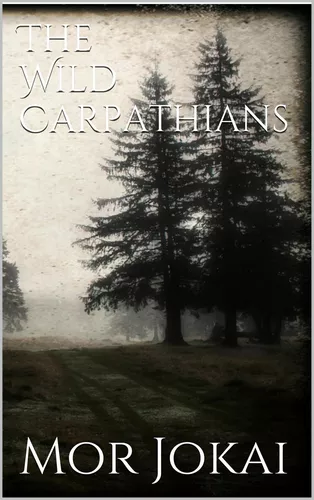Skip to the end of the images gallery Navigation umschalten
Skip to the beginning of the images gallery Navigation umschalten

The Wild Carpathians
ePUB
575,7 KB
DRM: Wasserzeichen
ISBN-13: 9783748173380
Verlag: BoD - Books on Demand
Erscheinungsdatum: 14.01.2019
Sprache: Englisch
Barrierefreiheit: Eingeschränkt zugänglich
CHF 3.00
inkl. MwSt.
sofort verfügbar als Download
Du schreibst?
Erfüll dir deinen Traum, schreibe deine Geschichte und mach mit BoD ein Buch daraus!
Mehr InfosHungarians regard Az Erdely arany kora as, on the whole, the best of Jokai's great historical romances, and, to judge from the numerous existing versions of it, foreigners are of the same opinion as Hungarians. Few of Jokai's other tales have been translated so often, and the book is as great a favourite in Poland as it is in Germany. And certainly it fully deserves its great reputation, for it displays to the best advantage the author's three characteristic qualities-his powers of description, especially of nature, his dramatic intensity, and his peculiar humour.
The scene of the story is laid among the virgin forests and inaccessible mountains of seventeenth-century Transylvania, where a proud and valiant feudal nobility still maintained a precarious independence long after the parent state of Hungary had become a Turkish province. We are transported into a semi-heroic, semi-barbarous borderland between the Past and the Present, where Mediaevalism has found a last retreat, and the civilizations of the East and West contend or coalesce. Bizarre, gorgeous, and picturesque forms flit before us-rude feudal magnates and refined Machiavellian intriguers; superb Turkish pashas and ferocious Moorish bandits; noble, high-minded ladies and tigrish odalisks; saturnine Hungarian heydukes, superstitious Wallachian peasants, savage Szeklers, and scarcely human Tartars.
The scene of the story is laid among the virgin forests and inaccessible mountains of seventeenth-century Transylvania, where a proud and valiant feudal nobility still maintained a precarious independence long after the parent state of Hungary had become a Turkish province. We are transported into a semi-heroic, semi-barbarous borderland between the Past and the Present, where Mediaevalism has found a last retreat, and the civilizations of the East and West contend or coalesce. Bizarre, gorgeous, and picturesque forms flit before us-rude feudal magnates and refined Machiavellian intriguers; superb Turkish pashas and ferocious Moorish bandits; noble, high-minded ladies and tigrish odalisks; saturnine Hungarian heydukes, superstitious Wallachian peasants, savage Szeklers, and scarcely human Tartars.
Eigene Bewertung schreiben






Es sind momentan noch keine Pressestimmen vorhanden.